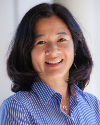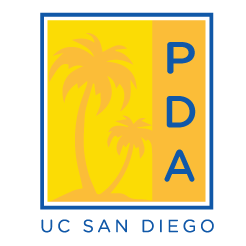
Deborah Kado, M.D., M.S.

- Interview Overview
Interview Overview
Interview and Editing by: Jamie Joseph
1. Where did you complete your undergraduate, graduate and medical training?
I completed my undergraduate studies in Molecular Biology from Bryn Mawr College. I graduated medical school from Cornell University Medical College, completed internal medicine residency training at Harbor-UCLA Medical Center and a clinical research fellowship at UC San Francisco. I also received my M.S. in Epidemiology from the UC Los Angeles School of Public Health and completed further specialty training in Clinical Geriatrics at UC Los Angeles.
2. What would you say are the primary reasons why you chose to be an academic clinical researcher?
The primary reason was that I realized there are a multitude of unanswered scientific questions in regards to disease etiology, prevention and treatment.
3. Please provide a brief description of your current job profile. What percentage of your time is devoted to research, clinical and teaching or other responsibilities?
Currently, I am an Associate Professor of Geriatric Medicine with a joint appointment in the Departments of Family Medicine and Public Health and Internal Medicine. I serve as the Deputy Director of Clinical Research and Education for the Stein Institute of Research on Aging as well as UC San Diego’s Health System Osteoporosis Clinic Director. I spend about 70% of my time devoted to research, 15% of my time on clinical and administrative duties and 15% of my time teaching students that range from the undergraduate, graduate to postdoctoral levels.
4. Apart from your graduate and medical training, do you feel that there were specific skills or factors that helped you acquire your current position?
Absolutely. My post-graduate training experience in clinical research at the UC San Francisco was seminal in allowing me to develop from being a well-trained clinician to an effective clinical researcher. The UC San Francisco training program in clinical epidemiological research was outstanding and gave me the necessary skills to be able to take a study question, develop it into a research project, conduct the research, present the results and publish them. In addition, I had two outstanding clinical research mentors, Drs. Steve Cummings and Warren Browner.
5. Are there any specific challenges you experienced during process of transitioning from a clinician to an Assistant Professor that you would like to highlight? If yes, how did you overcome these challenges?
Being a clinician and doing clinical research are related, but also quite distinct. Most clinicians do not take the extra time to undergo further training to acquire optimal research skills. In my case, I took an extra year to serve as Chief Resident of Internal Medicine and an additional 4 years of post-residency training to obtain the skills I felt that I needed to succeed in an academic research track.
6. Please describe your professional aspirations for the next 5 years.
My professional aspirations for the next 5 years are to change the way we approach and treat patients with hyperkyphosis and osteoporosis. I also hope to be inspired by new research questions that are clinically relevant to understanding and improving lives of older people as they age into their senior years.
7. Do you feel there is anything in particular that you could have done more in order to acquire or prepare for the responsibilities of your current position?
The truth is there is always something more that one could do to be better prepared. Being a successful physician scientist is challenging. There is great deal to master and we constantly have to keep reminding ourselves that at the end of the day this is about using science to improve the lives of patients.
8. Do you have any advice for postdocs who are interested in developing new research collaborations or looking to obtain additional mentorship or training opportunities outside their home lab?
Yes, I do. Don’t be afraid to approach professors if you have similar research interests or are interested in delving into a new area of inquiry. However, do your homework first. Learn about whom you might be approaching, their working styles, whether they have a good reputation for mentoring, and be very familiar with what they do. It is also helpful to have specific questions and ideas, but I don’t think it is absolutely necessary. Finally, having a referral from another person, whether it be another professor, postdoc, or some other source is also very helpful.
9. What do you feel is the most important advice you can give to a current UC San Diego postdoc in order for them to achieve a position such as yours?
Listen carefully, don’t be afraid to make mistakes, own up to your mistakes, learn from your mistakes, work hard, have integrity in all that you do, and no matter the outcome, you will be able to sleep at night.
